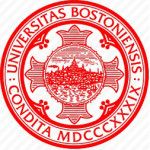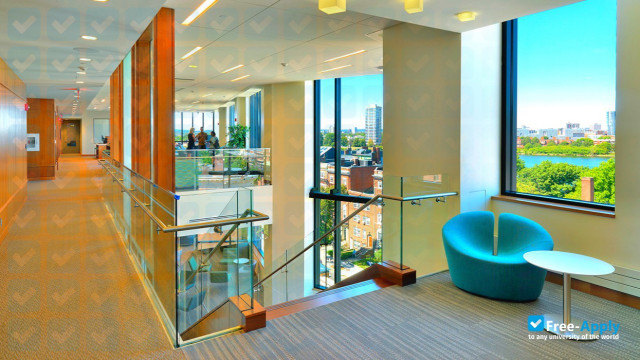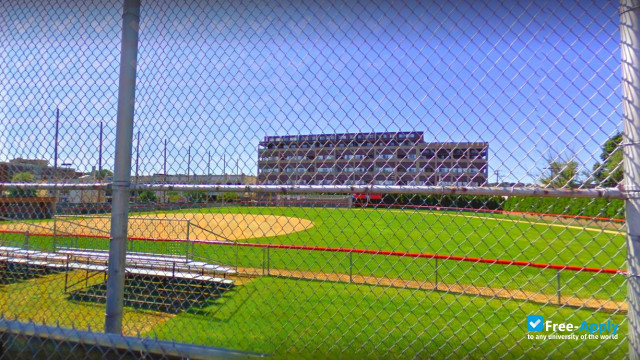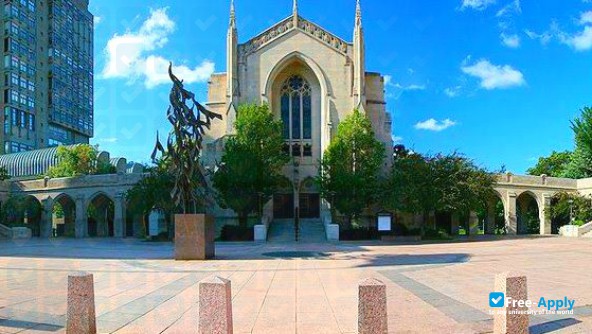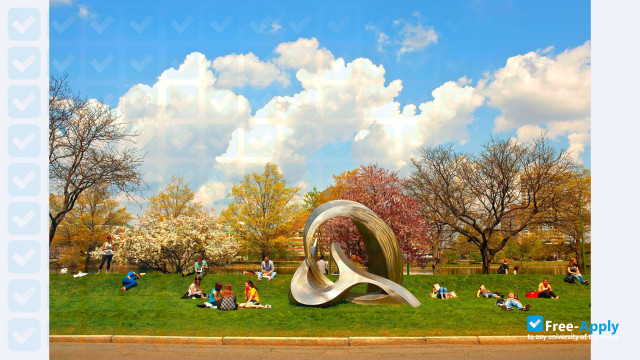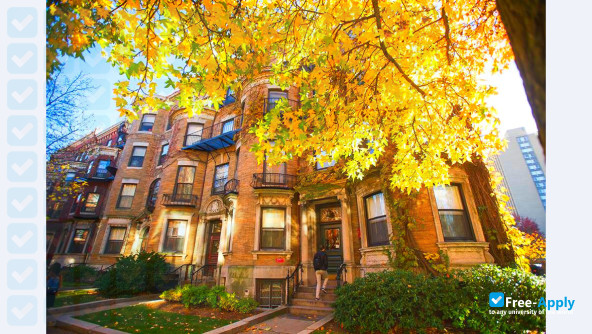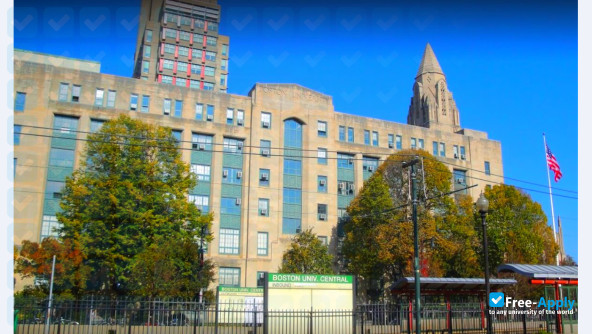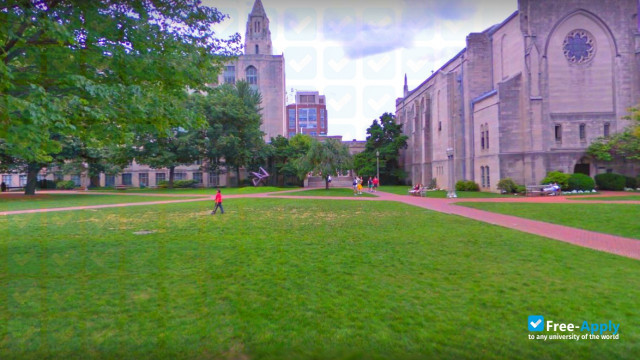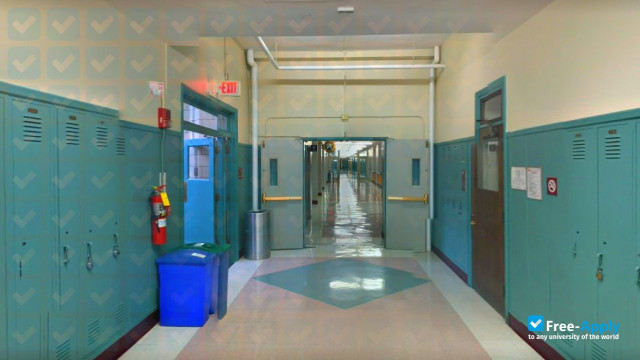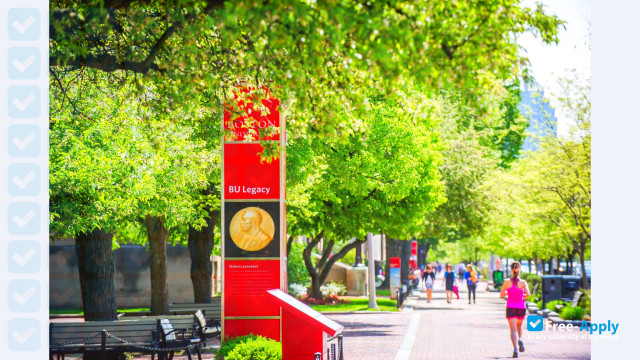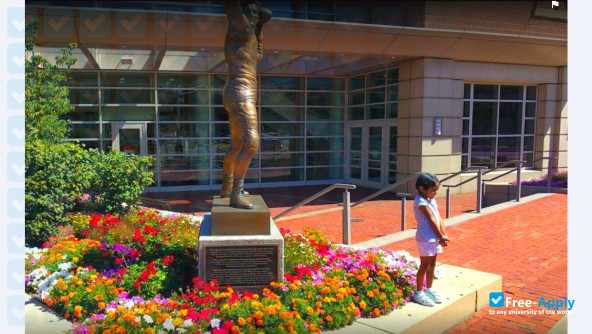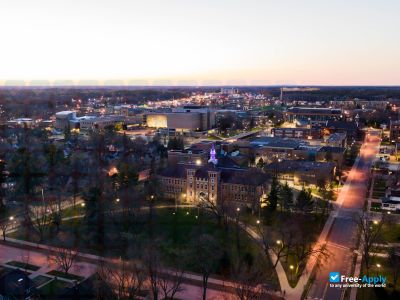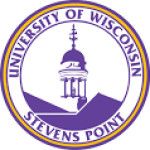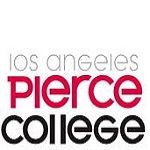About the university
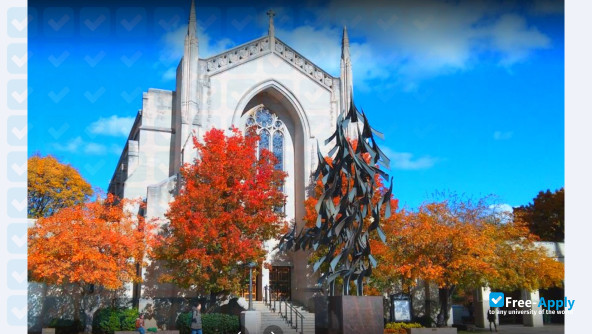
Boston University traces its roots to the establishment of the Newbury Biblical Institute in Newbury, Vermont in 1839, and was chartered with the name "Boston University" by the Massachusetts Legislature in 1869. The University organized formal Centennial observances both in 1939 and 1969. On April 24–25, 1839 a group of Methodist ministers and laymen at the Old Bromfield Street Church in Boston elected to establish a Methodist theological school. Set up in Newbury, Vermont, the school was named the "Newbury Biblical Institute". In 1847, the Congregational Society in Concord, New Hampshire, invited the Institute to relocate to Concord and offered a disused Congregational church building with a capacity of 1200 people. Other citizens of Concord covered the remodeling costs. One stipulation of the invitation was that the Institute remain in Concord for at least 20 years. The charter issued by New Hampshire designated the school the "Methodist General Biblical Institute", but it was commonly called the "Concord Biblical Institute." With the agreed twenty years coming to a close, the trustees of the Concord Biblical Institute purchased 30 acres (120,000 m2) on Aspinwall Hill in Brookline, Massachusetts, as a possible relocation site. The institute moved in 1867 to 23 Pinkney Street in Boston, and received a Massachusetts Charter as the "Boston Theological Institute". In 1869, three trustees of the Boston Theological Institute obtained from the Massachusetts Legislature a charter for a university by name of "Boston University". These trustees were successful Boston businessmen and Methodist laymen, with a history of involvement in educational enterprises and became the founders of Boston University. They were Isaac Rich (1801–1872), Lee Claflin (1791–1871), and Jacob Sleeper (1802–1889), for whom Boston University's three West Campus dormitories are named. Lee Claflin's son, William, was then Governor of Massachusetts and signed the University Charter on May 26, 1869 after it was passed by the Legislature. As reported by Kathleen Kilgore in her book, Transformations, A History of Boston University (see Further reading), the founders directed the inclusion in the Charter of the following provision, unusual for its time: No instructor in said University shall ever be required by the Trustees to profess any particular religious opinions as a test of office, and no student shall be refused admission . . . on account of the religious opinions he may entertain; provided, nonetheless, that this section shall not apply to the theological department of said University. Every department of the new university was also open to all on an equal footing regardless of sex, race, or (with the exception of the School of Theology)[further explanation needed] religion. Robert Brown's presidency, which started in 2005, has sought to further the consolidation of campus infrastructure that was commenced by earlier administrations. During his tenure, Brown has strengthened the core missions of undergraduate, graduate, and professional education, interdisciplinary work, and research and scholarship across all 17 schools and colleges. In 2007 Brown introduced his 10-year strategic plan, which articulates BU's core values in a set of institutional commitments and defines goals to be met to establish BU as one of the largest private research universities. Brown committed the University to investing $1.8 billion in the completion of this ten-year strategic plan,[30] allocating new resources to inter-college opportunities for undergraduates, improving the campus's academic and residential facilities, and recruiting new faculty. One overriding goal has been to break down the barriers between the University's 17 school's and colleges that had evolved over the decades and find ways to combine different fields and researchers within interdisciplinary research centers. This philosophy of creating new knowledge from a variety of corners of the University extends to undergraduate education, as well, which has been overhauled to expose students to new fields and ways of thinking and problem solving. This includes requiring course work outside their majors, development of personal communications skills, and cross-school collaborations. That new curriculum, called the BU Hub, goes into effect in 2018. The strategic plan also called for increasing the annual budget by $225 million per year. The FY2016 operating budget was $2.2 billion and the FY2017 budget is $2.4 billion.[33] In FY2016, the research enterprise at the University brought in $368.9 million in sponsored research, comprising 1,896 awards to 722 faculty investigators. In 2012, the University was invited to join the Association of American Universities, the organization of the 62 leading research universities in the United States and Canada. BU, one of only four universities invited to join the group since 2000, became the 62nd member. In the Boston area, Harvard, MIT, and Brandeis are also members. That same year, a $1 billion comprehensive fundraising campaign was launched, the University's first-ever comprehensive campaign, with the primary focus on financial aid, faculty support, research, and facility improvements. In 2016 the campaign goal was reached. The Board of Trustees voted to raise the goal to $1.5 billion and extend through 2019. To date, the campaign has funded some 74 new faculty positions, including 49 named full professorships and 25 Career Development Professorships. In 2016, Times Higher Education (THE) named Boston University to a list of 53 “international powerhouse” institutions, schools that have the best chance of being grouped alongside—or ahead of—THE’s most elite global “old stars,” a group that includes the University of Oxford, Stanford, Harvard, Yale, MIT, and Princeton. The Charles River and Medical Campuses have also undergone notable physical transformations since 2006, from new buildings and playing fields to dormitory renovations. The campus has seen the addition of a 26-floor student residence at 33 Harry Agannis Way, nicknamed StuVi2, the New Balance Playing Field, the Yawkey Center for Student Services, the Alan and Sherry Leventhal Center, the Law tower and Redstone annex, the Engineering Product Innovation Center (EPIC), the Center for Integrated Life Sciences & Engineering (CILSE), and the Joan and Edgar Booth Theatre, scheduled to open in fall 2017. The Dahod Family Alumni Center in the renovated BU Castle will begin in May 2017. Development of the University's existing housing stock has included significant renovations to BU's oldest dorm, Myles Standish Hall and Annex, and to Kilachand Hall, formerly known as Shelton Hall, and a brand new student residence on the Medical Campus.
Education programs
Applied Sciences and Professions
Applied Sciences and Professions
Bachelor of Applied Sciences & Professions
English
Language of instructions
Full-time
Study mode
$50,980
Fee for international students
$50,980
Fee for domestic students
Archeology
~ $50,980 / year
Archeology
Bachelor of Archeology
English
Language of instructions
Full-time
Study mode
$50,980
Fee for international students
$50,980
Fee for domestic students
Arts
~ $50,980 / year
Arts
Bachelor of Arts
English
Language of instructions
Full-time
Study mode
$50,980
Fee for international students
$50,980
Fee for domestic students
Biology
~ $50,980 / year
Biology
Bachelor of Biological
English
Language of instructions
Full-time
Study mode
$50,980
Fee for international students
$50,980
Fee for domestic students
Business
~ $50,980 / year
Business
Bachelor of Business
English
Language of instructions
Full-time
Study mode
$50,980
Fee for international students
$50,980
Fee for domestic students
Chemistry
~ $50,980 / year
Chemistry
Bachelor of Chemistry
English
Language of instructions
Full-time
Study mode
$50,980
Fee for international students
$50,980
Fee for domestic students
Computer Science
~ $50,980 / year
Computer Science
Bachelor of Computer Science
English
Language of instructions
Full-time
Study mode
$50,980
Fee for international students
$50,980
Fee for domestic students
Culturology
~ $50,980 / year
Culturology
Bachelor of Culturology
English
Language of instructions
Full-time
Study mode
$50,980
Fee for international students
$50,980
Fee for domestic students
Earth Sciences
~ $50,980 / year
Earth Sciences
Bachelor of Earth Sciences
English
Language of instructions
Full-time
Study mode
$50,980
Fee for international students
$50,980
Fee for domestic students
Ecology
~ $50,980 / year
Ecology
Bachelor of Ecology
English
Language of instructions
Full-time
Study mode
$50,980
Fee for international students
$50,980
Fee for domestic students
Economics
~ $50,980 / year
Economics
Bachelor of Economics
English
Language of instructions
Full-time
Study mode
$50,980
Fee for international students
$50,980
Fee for domestic students
Engineering
~ $50,980 / year
Engineering
Bachelor of Engineering
English
Language of instructions
Full-time
Study mode
$50,980
Fee for international students
$50,980
Fee for domestic students
Environmental Studies
~ $50,980 / year
Environmental Studies
Bachelor of Environmental Studies
English
Language of instructions
Full-time
Study mode
$50,980
Fee for international students
$50,980
Fee for domestic students
Health
~ $50,980 / year
Health
Bachelor of Health
English
Language of instructions
Full-time
Study mode
$50,980
Fee for international students
$50,980
Fee for domestic students
Hospitality
~ $50,980 / year
Hospitality
Bachelor of Hospitality
English
Language of instructions
Full-time
Study mode
$50,980
Fee for international students
$50,980
Fee for domestic students
Humanities
~ $50,980 / year
Humanities
Bachelor of Humanities
English
Language of instructions
Full-time
Study mode
$50,980
Fee for international students
$50,980
Fee for domestic students
IT
~ $50,980 / year
IT
Bachelor of IT
English
Language of instructions
Full-time
Study mode
$50,980
Fee for international students
$50,980
Fee for domestic students
Law and Jurisprudence
~ $50,980 / year
Law and Jurisprudence
Bachelor of Law & Jurisprudence
English
Language of instructions
Full-time
Study mode
$50,980
Fee for international students
$50,980
Fee for domestic students
Mathematics
~ $50,980 / year
Mathematics
Bachelor of Mathematics
English
Language of instructions
Full-time
Study mode
$50,980
Fee for international students
$50,980
Fee for domestic students
Medicine
~ $50,980 / year
Medicine
Bachelor of Medicine
English
Language of instructions
Full-time
Study mode
$50,980
Fee for international students
$50,980
Fee for domestic students
Philology
~ $50,980 / year
Philology
Bachelor of Philology
English
Language of instructions
Full-time
Study mode
$50,980
Fee for international students
$50,980
Fee for domestic students
Philosophy
~ $50,980 / year
Philosophy
Bachelor of Philosophy
English
Language of instructions
Full-time
Study mode
$50,980
Fee for international students
$50,980
Fee for domestic students
Physics
~ $50,980 / year
Physics
Bachelor of Physics
English
Language of instructions
Full-time
Study mode
$50,980
Fee for international students
$50,980
Fee for domestic students
Technology
~ $50,980 / year
Technology
Bachelor of Technology
English
Language of instructions
Full-time
Study mode
$50,980
Fee for international students
$50,980
Fee for domestic students
How to apply to the university
Choose a program
Press “Apply now” button
Send an application form
Complete admissions tasks
Go to study
To apply to Boston University follow these steps. To get more information about the university and the admissions process, you can use the live chat to contact a university representative.
Required documents for admission
When applying for admission to Boston University in United States you should prepare all required documents. Request a list of necessary documents directly from a university, as it may vary for different countries. Using our live chat, you can also ask for sample documents.
- TOEFL Certificate
- Application fee
- Research proposal outline (MA, PhD)
- Photographs
- Letters of reccomendation (for undergraduate)
- Health and Life Insurance
- Proof of fee payment
- Declaration for financial support
- Motivation Letter
- World Education Services evaluation
- Family Details
- Passport
- Student visa
- Letters of reccomendation (MA, PhD)
- Online Application form
Why people choose this university
Contacts
Boston University
233 Bay State Road
Boston
MA 02215
United States
Free Apply is not responsible for the content of this page. Through the Site, Free Apply provides an online catalog which you can use to find different types of educational institutions. It’s possible for a new university to be registered by any user, however only verified university representatives will be able to manage, reply in chat and make changes to a university page. Once the University registers its official representative, it has the right to block access for others to edit the information. Further control over the content will be carried out by the representative of the University. Registration with the Free-Apply.com catalog is free.
